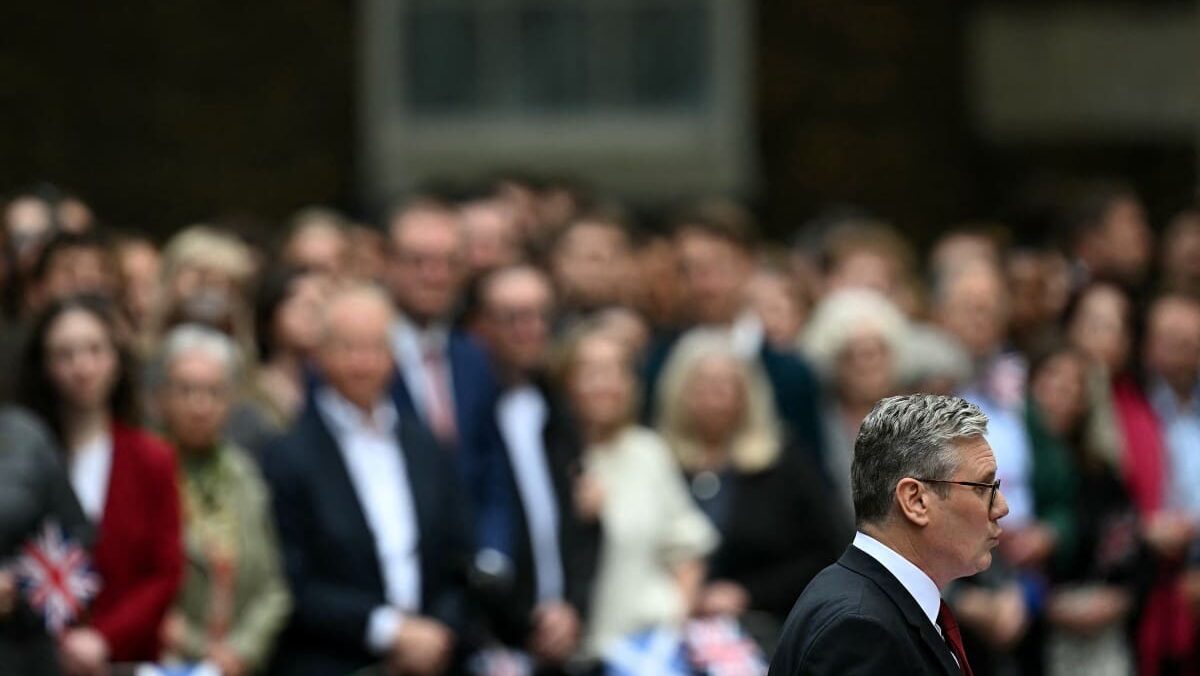
Action carried out in the first 24 hours of Sir Keir Starmer’s premiership was enough to give the lie to the view—mindlessly pushed by much of the media and the Tory establishment ahead of the election—that Labour simply wanted “power for power’s sake.”
Even those who didn’t see this coming should now realise that while it can’t claim to have popular support, Labour does, in fact, have radical plans to transform the UK, and that these are already well underway.
The first step, conducted in Starmer’s first full day as prime minister, was to overturn the previous Conservative government’s scheme for stopping illegal migration. Scrapping the ‘Rwanda Plan’—designed to deter Channel crossings by sending migrants to the African nation for processing—was probably the right move. It simply wasn’t working, and—as former PM Rishi Sunak himself knew—likely never would. But there’s no indication that Labour’s plan to “smash the [smuggling] gangs” will do any good either. It’s easy to imagine the situation getting worse—that is, much better for those hoping to enter the UK illegally, who have been open about their excitement at the new administration.
Neither did it take long for reports to emerge of flirtatious talk between Labour’s new government and European Union bosses. As the new Foreign Secretary David Lammy—who voted ‘Remain’ in the 2016 Brexit vote, called Tory Brexiteers ‘Nazis,’ and later pushed for a second referendum—headed to Berlin for his first overseas visit in the role, the German foreign office gloated that it was already “working with the new UK government to see how the UK can move closer to the EU.” Brussels sources also told The Mail on Sunday over the weekend that any renegotiated Brexit deal will likely involve a relaxation of freedom of movement rules, which is a strong indicator that migration numbers will continue going up under Starmer’s watch.
There has also been some flowery talk about house-building and the NHS, but proposals on the country’s overcrowded prisons have been the most eye-catching. After Starmer appointed businessman—and, significantly, campaigner for softer punishment—James Timpson as prisons minister, Labour announced possible plans to release prisoners after serving just 40% of their sentences, to free up spaces. Reform MP Lee Anderson quipped that “Labour’s groundbreaking idea to reduce crime is to release thousands of criminals onto our streets. Genius.” But the plans aren’t just a short-term fix; Timpson believes more broadly that Britain is “addicted to sentencing,” despite the fairly basic logic that if (as once happened) individuals were punished more seriously for so-called “petty crime,” they’d be deterred from continuing down the path of becoming hardened criminals, at the end of which prison is unlikely to change anything.
It is also worth taking a look at some of the figures in this new government. Apparently, there has been some “consternation” surrounding the involvement of Tony Blair and Gordon Brown-era officials, despite the warning signs being there all along. Either way, their presence strongly suggests that fears of upcoming constitutional changes are very real.
Harry Potter author J.K. Rowling has also been highly critical of new women and equalities minister Anneliese Dodds, who struggled in an interview with BBC radio’s Woman’s Hour to define what a woman actually is.
Woman's Hour, March 8, 2022
— J.K. Rowling (@jk_rowling) July 8, 2024
Emma Barnes: And Labour’s definition of a woman?
Annaliese Dodds: Well, I have to say that there are different definitions legally around what a woman actually is. I mean you look at the definition within the Equality Act and I think it just says… https://t.co/su448ikI2V
Then there’s Sir Patrick Vallance. The government’s chief scientific adviser during the pandemic, Sir Patrick became synonymous with the government’s daily COVID briefings, advocating enthusiastically for longer, harder lockdowns. He will now be a junior minister in the Department for Science, Innovation and Technology.
These figures will hold the reins of power for at least the next five years—possibly much, much longer—during which time they will impose many disastrous changes. Some of them are likely to be irreversible.
